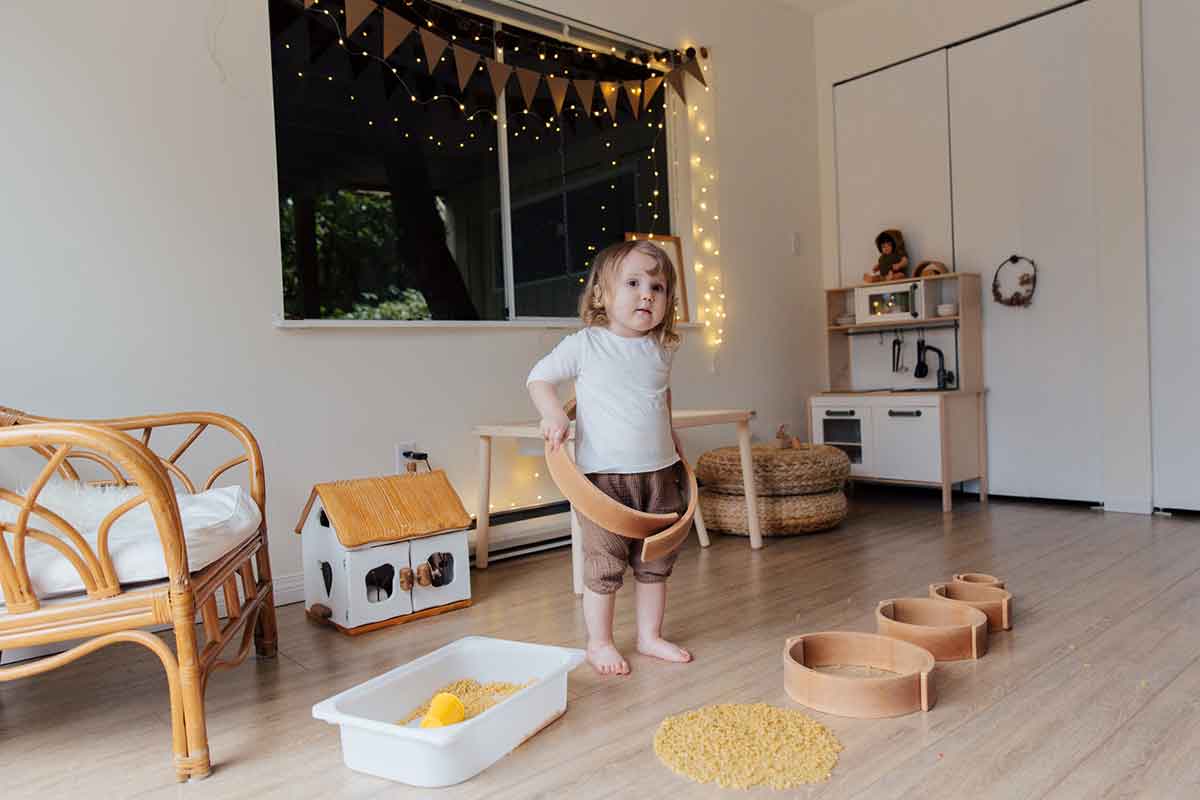Montessori is a method of educating children developed by Dr. Maria Montessori in the early 1900s. It’s an educational approach that is pretty different than the traditional classrooms. It promotes learning by allowing children of all ages in a classroom environment free to explore their surroundings. Children will participate in self-directed activities using a hands-on learning approach and collaborative play.
Every activity integrated into the Montessori education helps to advance learning and development but allows children to learn at their own pace in their own direction. The main principle of Montessori education is that children are explorers, and each child has interests that learn in their unique ways. The Montessori teaching method fosters growth by encouraging them to learn through natural and intuitive choice.
Principles Of Montessori
The Montessori education first introduced the key six principles in approaching early learning in children. Many schools have their own spin on these methods, but these are a great baseline with what makes Montessori unique and a great way to educate young children.
Independence
Montessori education encourages independence through exploration within their environment. Activities that encourage children to take responsibility to complete a task can lead to a child feeling confident in their independence.
Observation
The Montessori method requires adults and teachers to observe the child carefully and observe what interests them the most. There are periods when the child shows interest in one activity, called the sensitive period. By observing the child, the teacher can provide activities that support the development of that particular skill they have chosen to focus on.
Following The Child
Following the child encourages teachers and parents to observe but respect their child’s pace and interests rather than imposing their own ideas on how quickly they should learn and what they should be learning at that moment.
Correcting The Child
Children will inevitably make mistakes. It’s in their nature as they explore and learn. As a parent or teacher, instead of scolding or disciplining, it’s as simple as calmly acknowledging the mistake and providing insights on how to correct it.
Prepared Environment
The prepared environment is an environment designed with the child and their education in mind. It’s designed to give a child as much independence as possible while keeping them safe. Environments in a Montessori learning environment are generally calm and orderly and help children succeed in learning how to be independent.
Absorbent Mind
Children learn in different ways when they are younger. As they get older, more structured or independent learning begins to develop. But when children are young, they take everything around them effortlessly and unconsciously through their senses with hands-on learning. They learn best through actions and senses rather than through lectures and lessons.
Montessori education nurtures each child’s natural inclination for discovering and learning instead of providing them with facts. With the early support to allow them to question and make connections in their own time, Montessori students grow to be independent, self-directed learners and confident throughout their life.
Reason’s escape room for kids in San Francisco is a great way to incorporate Montessori learning to help encourage independence through problem-solving and exploring their environment. Visit us to plan an adventure perfect for the whole family today!

